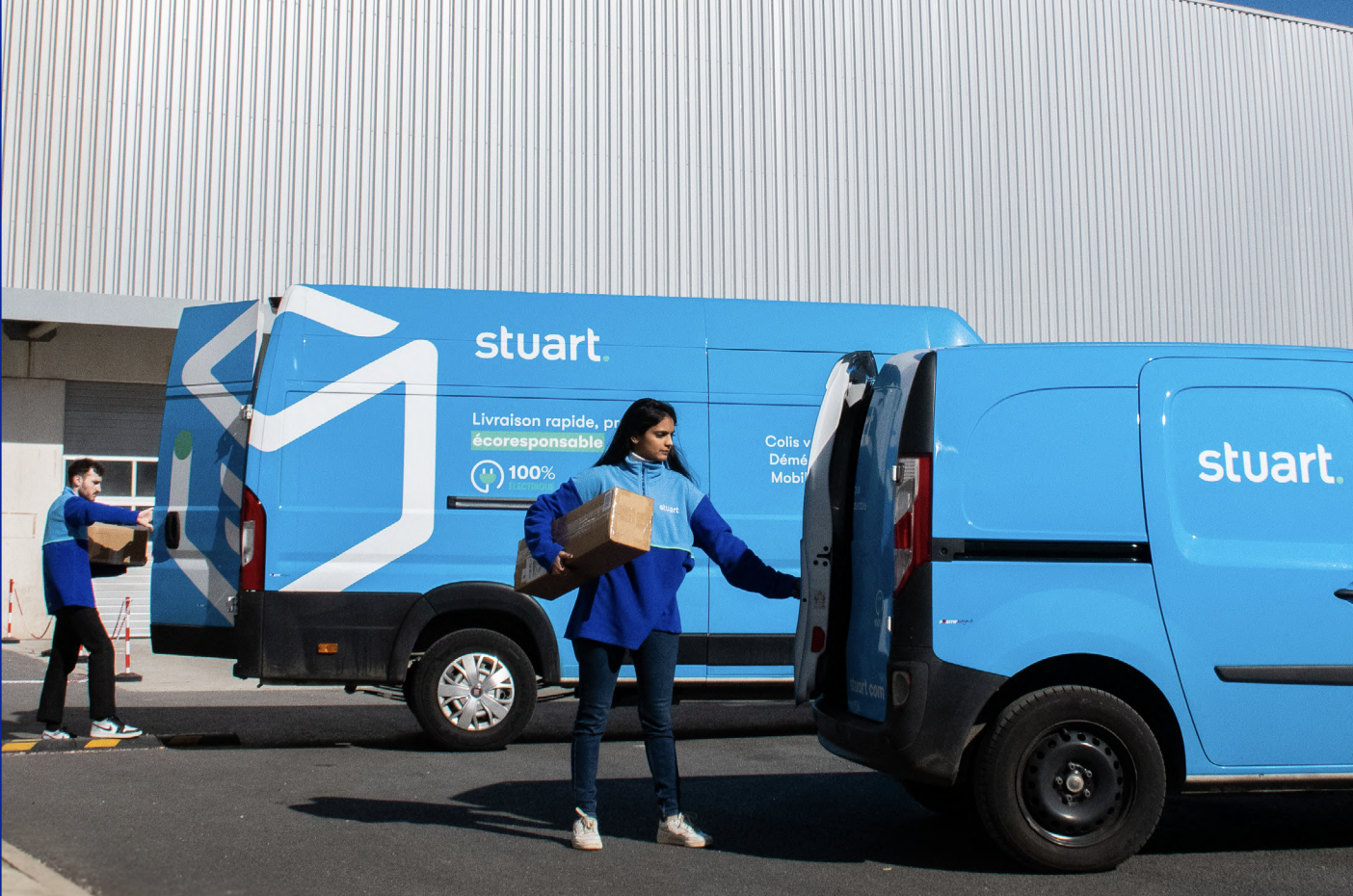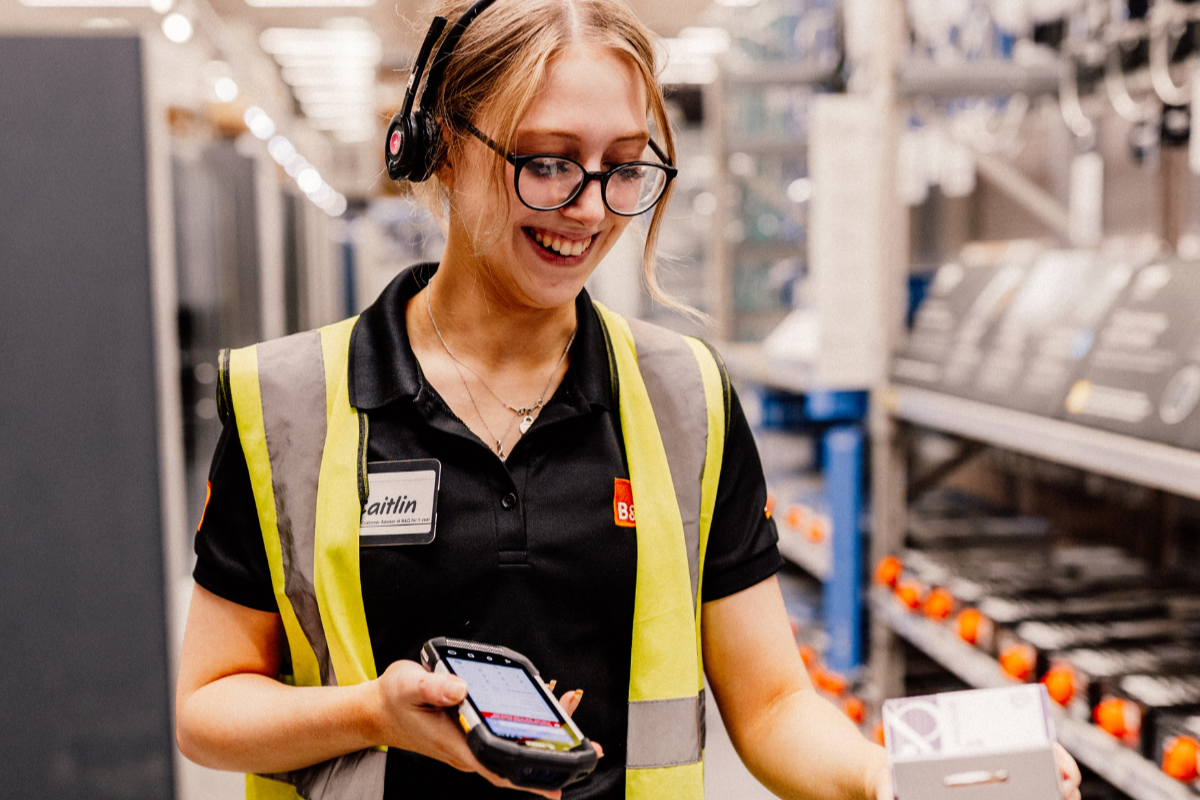Tom Allason launched Shutl in 2010 as an aggregator of point-to-point delivery providers. With Argos as its first customer, and piloting its service only in London to begin with, he’s gone on lead the business on to the global stage, and pulled off the thing that so many startup businesses can only ever dream of – acquisition by a global mega-corp.
External funding for Shutl came initially from angel investors, then a VC fund, and eventually Shutl received strategic investment from some big names, including UPS and GeoPost. Upon entering the US market, Shutl picked up eBay as a customer – a huge feather in anyone’s cap. And then, around 18 months ago, eBay acquired Shutl in what, to some startup CEOs, must read a little like a fairy tale.
eDelivery’s editor, Sean Fleming, caught up with Tom Allason to hear an in-depth history of Shutl, and to talk about life as a startup in the delivery space.
Shutl is not Tom Allason’s first foray into the delivery sector. He started out running a same-day b2b courier company, which was heavily based on the use of technology. Despite doing well by most measures – the company was growing – Allason says he realised he’d “got the market completely wrong … even though our business was growing pretty rapidly, the market that we were in was declining.”
Changing direction
Built on the back of document delivery, the b2b courier market was being heavily disrupted by the growth of email and online document exchange services, made possible by improved connectivity across most of the UK.
Conversely, those same disruptive market forces were prompting an explosion in online shopping, which created the need for more – and better b2c courier services. Seeing the obvious opportunity amidst the shrinking market he found himself in, Allason set about developing the business that would become Shutl.
“As I saw it, although ecommerce had come a very long way in the previous two decades, delivery hadn’t really changed,” he explains. “Because of the kind of business I’d operated before I knew that point-to-point couriers could be very cost effective for short distance deliveries. If you could have a delivery that was over a short distance, so sub-10 and even sub-five miles, you could offer the kind of service that a hub and spoke delivery provider just couldn’t. And what I mean by that is delivery usually within an hour of purchase or within a one hour window of consumer’s choice.
“We created a marketplace of all these local courier companies and then we served that marketplace up to multichannel retailers, the view being multichannel retailers. Those with high enough concentration of stores that a decent proportion of their transactions were from customers within that five-to-10 mile radius. It was really about solving the problem of consumers not being able to get delivery at a time that they wanted.”
Going global
The eBay acquisition is clearly the sort of moment in the life of a business that defines the future of where that business goes. Allason says that it was being able to get where it was going faster that made eBay such an attractive proposition, when – just before Shutl was about to go live in the US with eBay, the latter announced it was interested in making an acquisition.
“They offered us a deal that was hard to turn down commercially, but there was a lot more to it than that. The big challenge we always had as a business was distribution – getting retailers to implement to our service. It was a long sales cycle, lots of work required to integrate, and getting a retailer to do all this work when you’re a startup is difficult,” he says.
Any risk-averse business is likely to view startups as potentially too volatile and too fragile; will they still be around next month?
The eBay acquisition gave Shutl a golden opportunity to become a global business and to operate at great scale.

“We were fortunate, in a way,” Allason says. “Having built a business in the space beforehand gave me some credibility and some connections. We were also fortunate in that, although Amazon was the first to do same-day delivery, we were the first to offer same-hour and nominated one-hour window delivery. I think it’s fair to say we were pretty much the first globally to be doing that, and suddenly that space then started getting hot, particularly in the US.
“Also, and I wish I could say this was intentional but it wasn’t, but getting strategic ambassadors on board like UPS and GeoPost also gave us credibility, particularly in the US. When we were going to talk to US retailers and they’d never heard of us, never heard of any of our UK retailers, they still all knew that brown logo.”
Delivery sucks
The enormous growth of e-commerce, particularly in the last 10 years, has been part of a cycle of rapid and fundamental change across the face of the retail landscape. But as that pace of change quickens, and slower players fall by the wayside, are there still opportunities for new market entrants? Or is the gold-rush over?
Allason is pretty upbeat on this point, saying: “There’s a massive amount of opportunity out there, particularly in delivery because, let’s face it, delivery still does suck.
“The biggest, or most convenient, thing in delivery is click-and-collect – and when I say biggest I mean most widely adopted. The way I see it, fundamentally the problem is I can’t get my stuff delivered to me where I want and when I want at a price that I consider good value.
“The solution to that problem is probably not getting your product delivered somewhere you don’t want, i.e. a store, at a time you don’t want, but that is still more convenient than the alternative. And that’s basically the state of affairs that we have today.
“So I think there is still a huge opportunity out there in delivery. I think fundamentally the consumer is not really treated as the customer and alluding to the research we’ve done here, consumers’ expectations are changing very rapidly in this space.”
The basics of human nature should never be under-estimated, least of all in retail. Study after study, from marketers to anthropologists, shows that people very quickly adjust to new things, especially if there is a benefit from doing so. It’s not likely to surprise anyone that the carrot so beloved of online retail – free or very cheap next-day delivery – may have played a part in attracting customers, but it also set the bar high; people expect that delivery will be inexpensive and fast. The more new services are introduced (nominated hour, SMS alerts, you name it) the more customers’ expectations will rise. But at no point is there an attendant expectation that the price of delivery ought to increase.
Delivery networks weighed down by legacy equipment, technology, and processes are not best placed to response to changing customer tastes, nor can they easily roll out new services without incurring significant costs one way or another. If your business was built on the back of large DCs, fleets of vehicles, sorting offices, HGVs, and so on, a future where that kind of heavyweight infrastructure doesn’t guarantee success must look alarming.
Get connected
To startups and market disruptors, however, that’s the kind of future you rely on. But having a great idea has never been enough on its own. So what advice does Tom Allason have for the new market entrants of tomorrow? In short, he stresses the value of getting out, meeting people, attending conferences, learning and sharing with your peers.
“The value of the network I had was in the delivery space, which actually was not very valuable beyond getting our initial carriers, and certainly not so much in terms of getting retailers. So I found going to conferences, speaking at them, and getting pieces out in the retail press to be incredibly valuable because I had to get into the retail industry.
“And actually our buyers, the people we were selling into, were the multichannel directors and the marketing guys, the people who cared about the customer experience, who cared about conversion and cart abandonment, and who cared about the lifetime value of their consumer.
“So speaking at conferences, going to events with decision-makers was incredibly important. Not even as a building a network thing, but that was probably our primary sales channel. It’s very much a face-to-face sell and it’s selling a proposition which, certainly in the early days, was a little bit of a dream. We couldn’t have done it without a focus on attending the right kind of events.”
Having clearly navigated Shutl’s early days very successfully, I ask Allason what’s on the horizon for the business.
“We are very committed to building a brand among both consumers and retail partners,” he tells me. “And we think that what we’re doing is really all about control – giving consumers control over their deliveries. That’s what our deliver in 90 minutes or one-hour window is really all about. That speed and that accuracy of delivery is really about control, but for a small proportion of a retailer and consumer’s deliveries.
“We’re looking at how we can bring that kind of control to more of their deliveries.”
The next Shutl-like success story might have already taken its first tentative steps. One that that is certain, there are no easy-rides for startup businesses in any sector. Emulating the successes of the likes of Shutl can be an invaluable source of inspiration, particularly during periods of unrelenting hard work.
Building and nurturing your network of contacts and making the most of opportunities to be seen (and heard) as well as to learn from others are tremendously important. eDelivery is committed to helping the next-generation of retail delivery success story to find its feet, and find its voice. With that in mind, we have put together a startup package for next month’s eDelivery Conference, to make it easier and more affordable for startups to present their products and services to a high-value, targeted audience. It includes access to three conference streams, interactive workshops, a display area, and an invitation to the EDC networking drinks.
We would love to see as many startups there as possible, but as you can no doubt imagine, this is a limited availability offer. You’ll find more details on it here.










